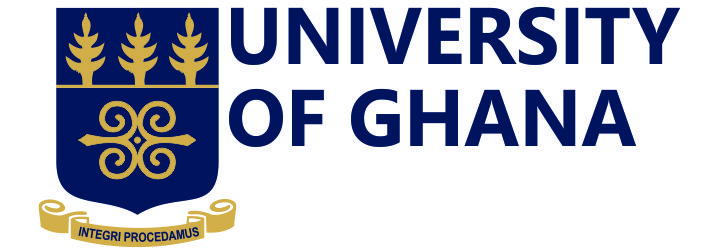Title of the Action
Innovative Adolescent Health Interventions in the Socio-demographically Diverse City of Tamale Towards Attaining the Sustainable Development Goals in Ghana
Name of Applicant
The Regional Institute for Population Studies, University of Ghana
Lead Applicant and Lead Scientists:
- Dr. Margaret D. Badasu (Principal Lead); University of Ghana
- Dr. Benjamin D. Dovie (Co-Lead); University of Ghana
- Professor Stephen O. Kwankye (Co-Lead); University of Ghana
Target City
Tamale, located in least-resourced northern Ghana
Population (2010 Census): 360,297, representing 18.4 percent of the population of the largest city (Accra)
Youthful population, with 36.7 percent below 15 years.
Adolescents aged 10-14 years constitute a little more than a tenth (10.4%) of Tamale's population.
Supporting City
Ashaiman, a fast-emerging secondary city
Located in the Greater Accra Region, the region with the capital town, Accra
Population (2010 Census): 190,972, close to 10 percent of the population of the City of Accra.
Ashaiman already exhibiting characteristics of cities and adolescent health challenges
Also exhibits the key adolescent health challenges in southern Ghana that could present interesting lessons to be compare with Tamale in the north.
A strongly emerging secondary city
Has been a dormitory settlement for workers in the city of Accra, the national capital and Tema, Ghana’s largest industrial town as a result of its proximity to both towns.
Objectives
- To prioritize and integrate adolescent health intervention programming into the Tamale Metropolitan Assembly's medium-term development plan to inform Government of Ghana’s efforts towards the attainment of Sustainable Development Goal 3 (Ensure healthy lives and promote well-being for all at all ages) and related goals (SDG1, SDG4, SDG 5 and SDG17), i.e., ending poverty; inclusive and equitable quality education; gender equality and strengthened partnerships respectively.
- To engender the health and general wellbeing of adolescents through multi-stakeholder programming involving public, private and civil society sectors, that can use Tamale Metropolitan Assembly's information centres spread in the city as they sensitize the city authorities.
- To advocate enablers of technological, financial and cultural opportunities for adolescents' access to health information and services through integration of the adolescents into the design and implementation of the project and sensitizing their parents and communities on adolescents sexual and reproductive health needs and general wellbeing with reference to Ghana’s 2015 Child and Family Welfare Policy and other relevant policies.
- To contribute strategies towards reduced child marriage and early childbearing towards retention of at least half of adolescents in school beyond the basic level by the end of the third year of the project.
- To identify, analyze and disseminate best practices and lessons on the health (including sexual and reproductive health and nutrition) of young adolescents in Tamale Metropolitan Assembly and nationally, using innovative IT and Social Media platforms, with reference to the Child and Family Welfare Policy and the 2017 Sexual and Reproductive Health Policy for Young People in Ghana.
- To identify and sensitize future secondary cities (e.g. the case of Ashaiman) to respond to cities and adolescent health challenges and general wellbeing.
- To contribute to forward thinking and proactive evidence-based policy thinking for emerging secondary cities for which Ashaiman has been selected.
Context and Need/Opportunity
- Tamale’s population grew rapidly over the past two decades.
- A trunk city with cross-border movements from adjoining regions of Ghana, neighboring countries and the West African sub-region due to the Free Movement Protocol of the Economic Community of West African States (ECOWAS)
- The population has become diverse.
- Complex human health and development challenges have emerged in Tamale.
- Other consequences: serious reproductive health challenges and low school enrolment and high school drop-out rates among young adolescents.
- Nevertheless, there are opportunities to address the reproductive health challenges of adolescent:
- Presence of strong institutions that implement Ghana’s Child and Family Welfare Policy; and adolescent sexual and reproductive health programmes:
- Tamale Metropolitan Assembly, with its Department of Social Welfare and Community Development
- Ghana Health Service (GHS) of the Ministry of Health
- Ghana Education Service (GES) of the Ministry of Education
- NGOs such as the Planned Parenthood Association of Ghana (PPAG)
Three Broad but Inter-related Themes of the Project
- Healthy living, improved nutrition and general well-being among adolescents, both in-school and out-of-school.
- Optimal and innovative adolescent sexual and reproductive health information and services using emerging Information and Communication Technological tools and platforms, targeting adolescents and communities as change agents.
- Adolescent in-school retention through prevention of early marriage and childbearing that are driven by poverty and inimical socio-cultural beliefs and practices.
Consortium/Partners
Academia: Regional Institute for Population Studies, University of Ghana
Public: Tamale Metropolitan Assembly, with its Department of Social Welfare and Community; Ghana Health Service (GHS) of the Ministry of Health; Ghana Education Service (GES) of the Ministry of Education
Private sectors/non-governmental organizations (NGOs)
They work on cross-scale health, gender, empowerment and development issues from local to national levels.
